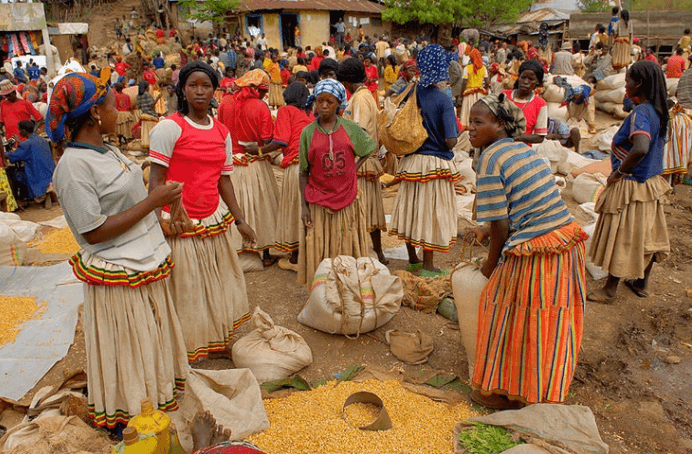Lessons from Ethiopia: Culture, Resilience, and Sustainability

Imagine a country that has endured centuries of transformation, from historical empires to contemporary difficulties, while preserving a thriving culture that is closely tied to its territory. That nation is Ethiopia. This country is a powerful example of the resilience and vitality of its people because this country has gone through many tough times in its history. To share examples of resilience or vitality to the global world, English to Amharic translation services are important. These services enable a greater understanding of Ethiopia’s history, its people, and its contributions to the global fabric by promoting the interchange of ideas.
Sustainability and Resilience Learnt through Cultural Values
Ethiopian culture is deeply rooted in the land. Therefore, many of its customs place a great emphasis on sustainable practices and harmony with the natural world. Awareness of the environment is demonstrated by the ancient farming method known as t’ef. This generation-to-generation agricultural knowledge emphasizes the value of biodiversity and soil conservation. Ethiopian culture places a strong emphasis on resiliency when dealing with adversities like hunger and drought. Overcoming adversity and guaranteeing survival has been made possible by the collective spirit and the value placed on family and community. The Qele system, an old method of managing water in Ethiopia can be used to remove the water shortage from the world. The Western world can gain insights from it by taking assistance from translation services.
Adversity in Ethiopia
Ethiopia has a history of perseverance because they have faced many hardships. The nation has continuously shown strength that has empowered them to overcome obstacles, from the memories of past wars to the issues of present times.
Ethiopia has never been colonized, despite colonial efforts. This is evidence of its people’s will to maintain their identity and sovereignty.
Professional translations are important to ensure that the tales of resilience are conveyed in a way that appeals to audiences around the world. This demands a thorough understanding of Ethiopian culture, values, and the background of every struggle and victory in addition to linguistic proficiency.
The essence of Ethiopian culture can be preserved through accurate translation, which can become a lesson for other countries on how to overcome adversities.
Spiritual and Religious Tolerance
The Ethiopian Orthodox is one of the oldest Christian groups in the world. Its history is dated back to the fourth century. In addition, Islam has existed since the seventh century, and numerous indigenous religions are practiced in different parts of the world.
Various religious communities coexist and engage in common cultural customs and practices; the nation’s attitude toward religious tolerance is ingrained in its historical and cultural values.
This religious peace is fostered through translation. Translation services guarantee that religious materials, teachings, and practices are available to everyone in Ethiopia due to its multilingual diversity.
Translators help in bridging linguistic barriers by offering precise translations of holy books and religious documents, allowing believers to clearly understand and practice their faith. Additionally, translation promotes interfaith cooperation and communication by enabling various religious communities to exchange stories and converse, leading to greater respect and understanding of one another’s views. Moreover, it ensures that every community has the chance to express and uphold its views by encouraging tolerance and respect for one another.
Sustainability in Ethiopia: A Model for the Future
Government policies of Ethiopia focus on a strong dedication to environmental preservation, renewable energy development, and innovative agriculture. Ethiopia has made great progress toward sustainability. Ethiopians, who have centuries-old customs and strong cultural values, are always innovating and adapting. Indigenous farming methods, like drought-resistant crop production and water-conserving terracing, aid in the fight against environmental issues. Social cohesiveness and stability are promoted via community-led projects and conventional dispute settlement techniques, such as the Gadaa method used by the Oromo people.
Other countries can learn from sustainability models like ecosystems, increasing the use of renewable energy sources like solar and wind, and implementing climate-resilient agriculture techniques.
Ethiopia’s sustainable practices can be successfully conveyed to audiences around the world through accurate and culturally appropriate translation services.
Indigenous Knowledge Systems in Ethiopia
Ethiopia’s agricultural methods, medical procedures, and environmental preservation plans have all been greatly influenced by its rich Indigenous Knowledge Systems (IKS). Ethiopia can create a tech-savvy, friendly environment along with culturally appropriate solutions by blending traditional knowledge with contemporary inventions.
For instance, Ethiopia has promoted soil conservation and food security through its centuries old agricultural practices. These include crop rotation and water harvesting methods. The nation may increase agricultural productivity while protecting biodiversity by combining these tested and reliable methods with recent developments in sustainable farming.
Similarly, for many decades, traditional Ethiopian medicine has offered efficient medical solutions through the use of herbal remedies and holistic healing techniques. By working together with contemporary medical research, these treatments can be further validated and improved, resulting in healthcare systems that are more culturally sensitive and accessible. The integration of medical knowledge into global healthcare discussions requires precise and accurate communication, making professional translation services essential for bridging linguistic and cultural gaps.
Furthermore, for generations, Ethiopian forests, water sources, and wildlife habitats have been protected by the country’s indigenous environmental stewardship, which is based on community-based resource management. It can be more effective to fight climate change and save natural ecosystems if these conservation techniques are acknowledged and included in national programs.
Conclusion
Ethiopia provides important lessons through its traditional farming methods and unflinching attitude, making it a prime example of resilience, sustainability, and cultural diversity. It sets an example for world advancement with its dedication to religious tolerance, community-driven solutions, and environmental responsibility.
It is crucial to communicate effectively if we are to share these findings globally. By bridging linguistic limitations, accurate translation services from English to Amharic allow for a more thorough appreciation of Ethiopia’s contributions. Translation services are essential to communicating Ethiopia’s sustainability initiatives and a lasting legacy because they preserve cultural identity and promote international cooperation.




